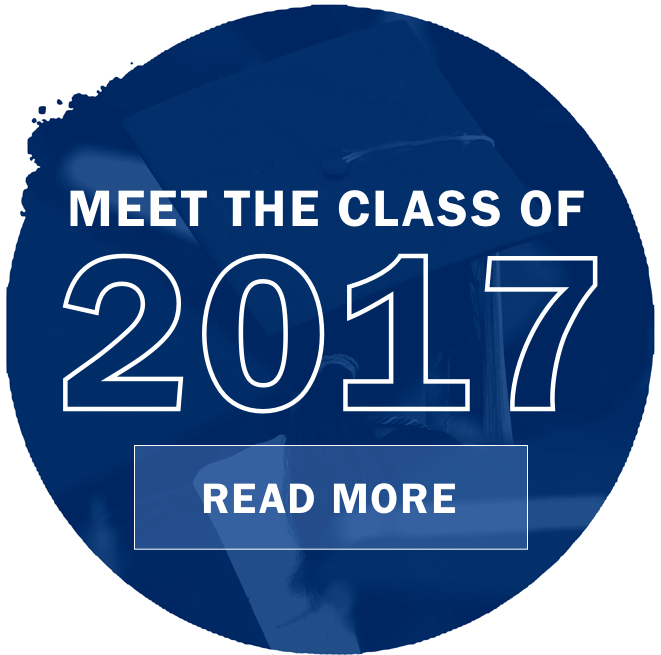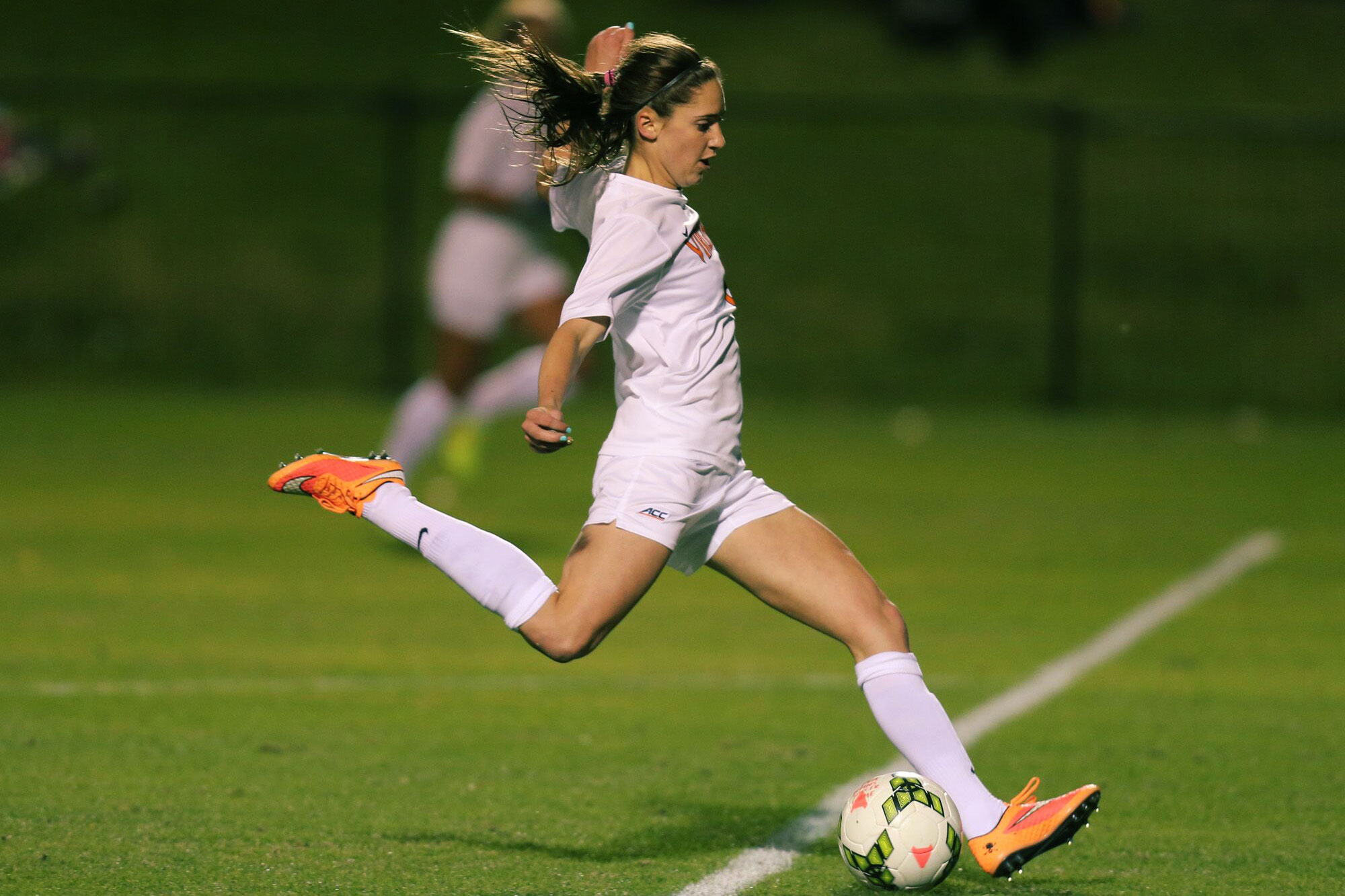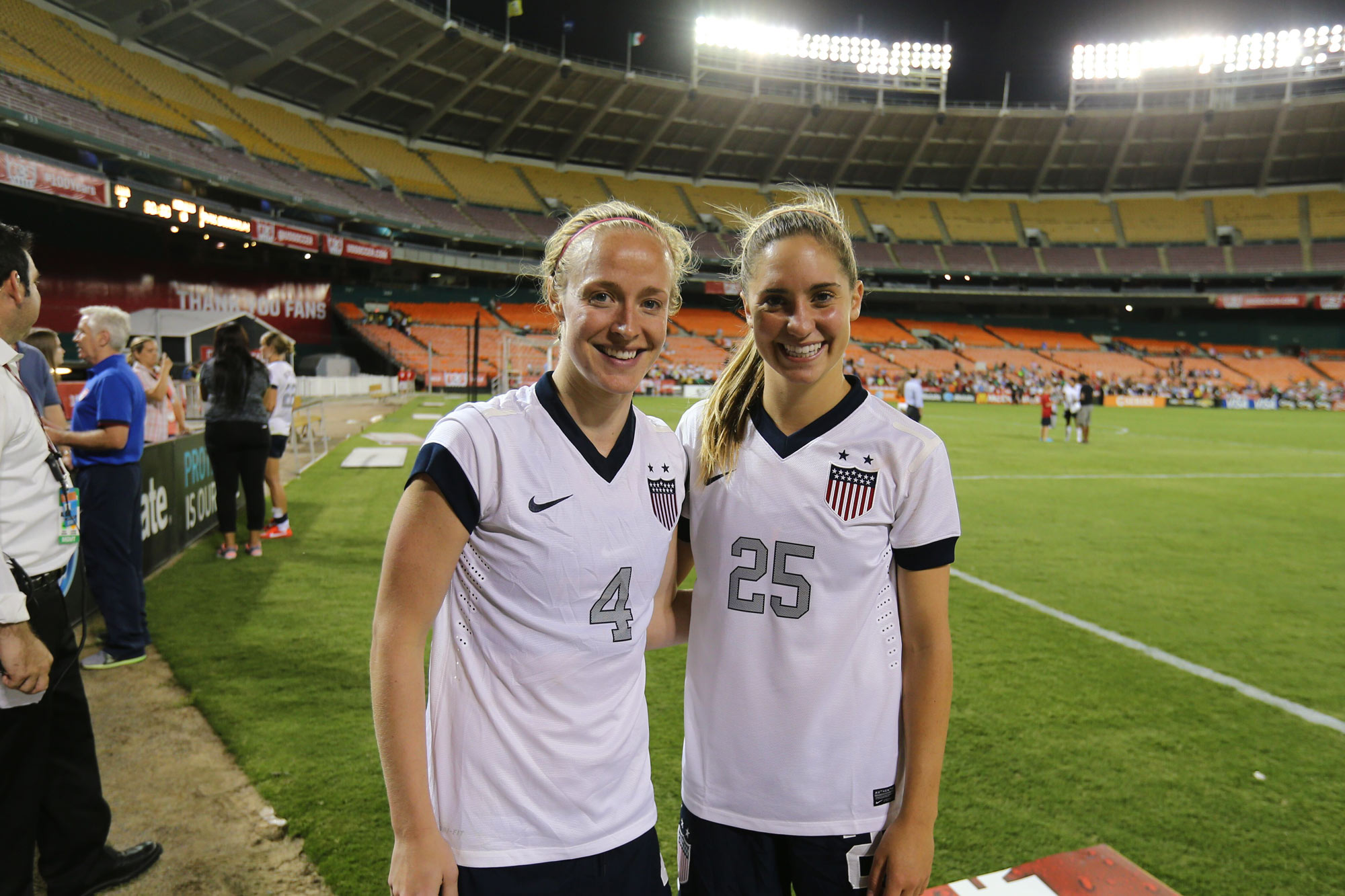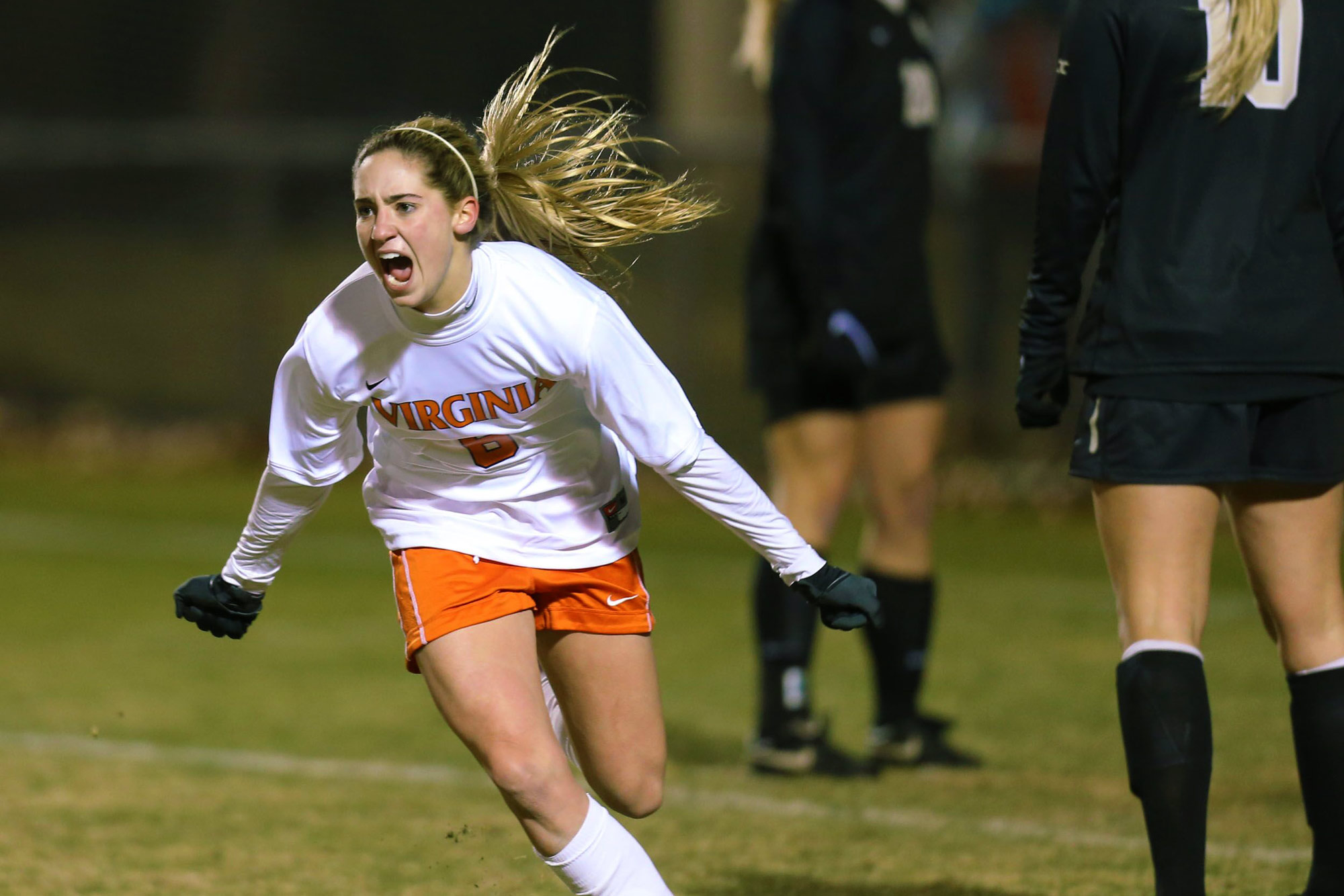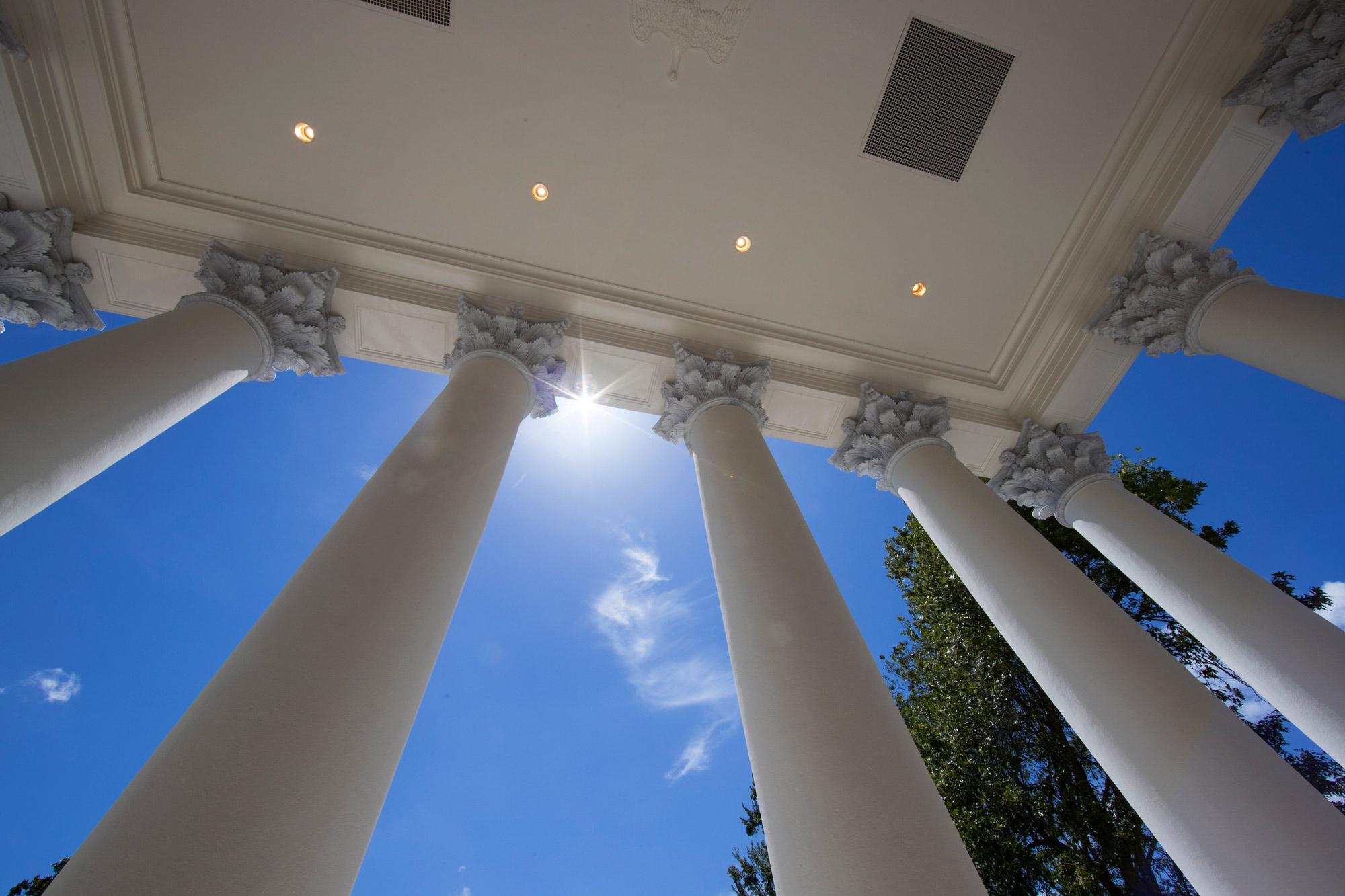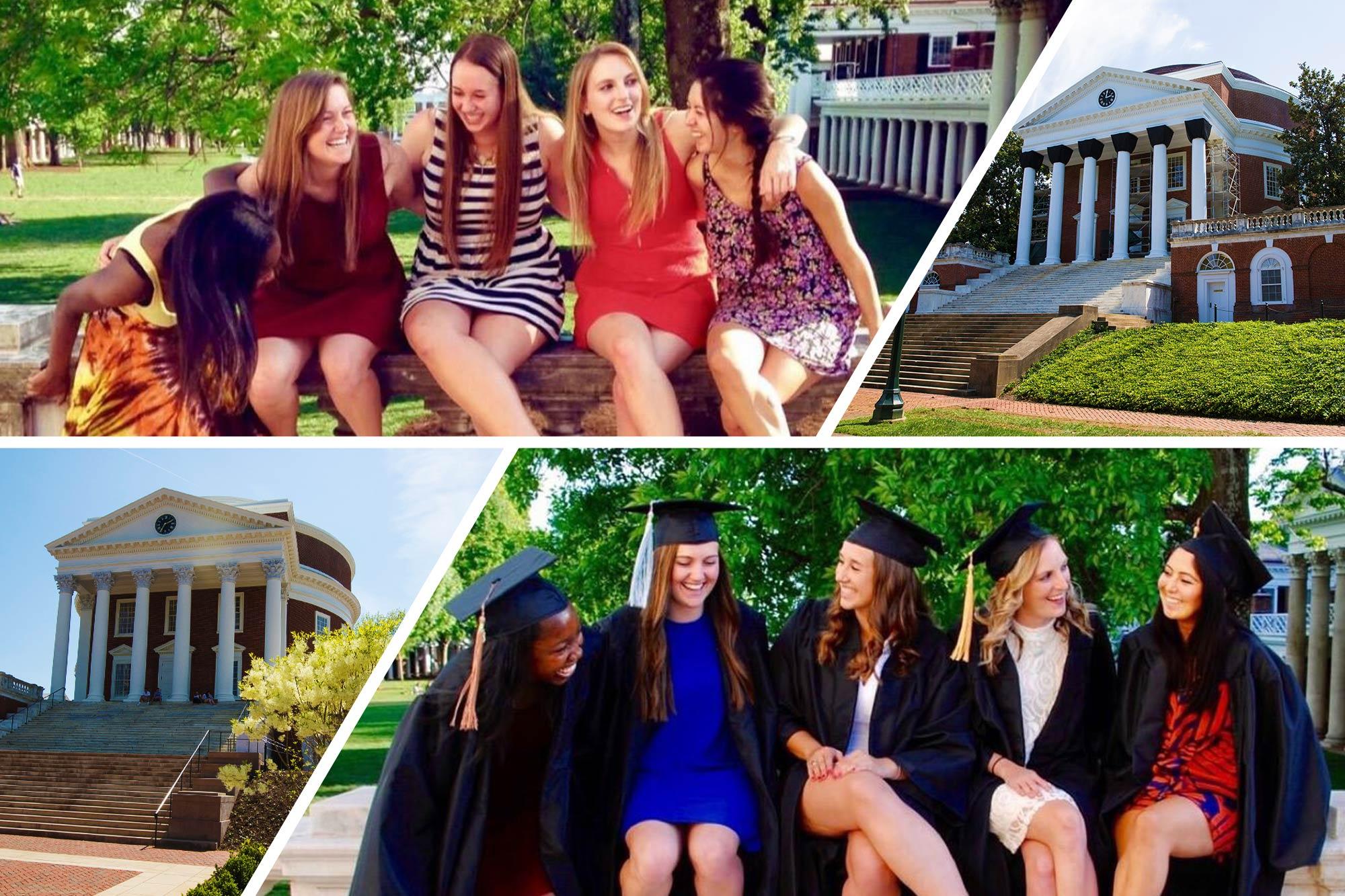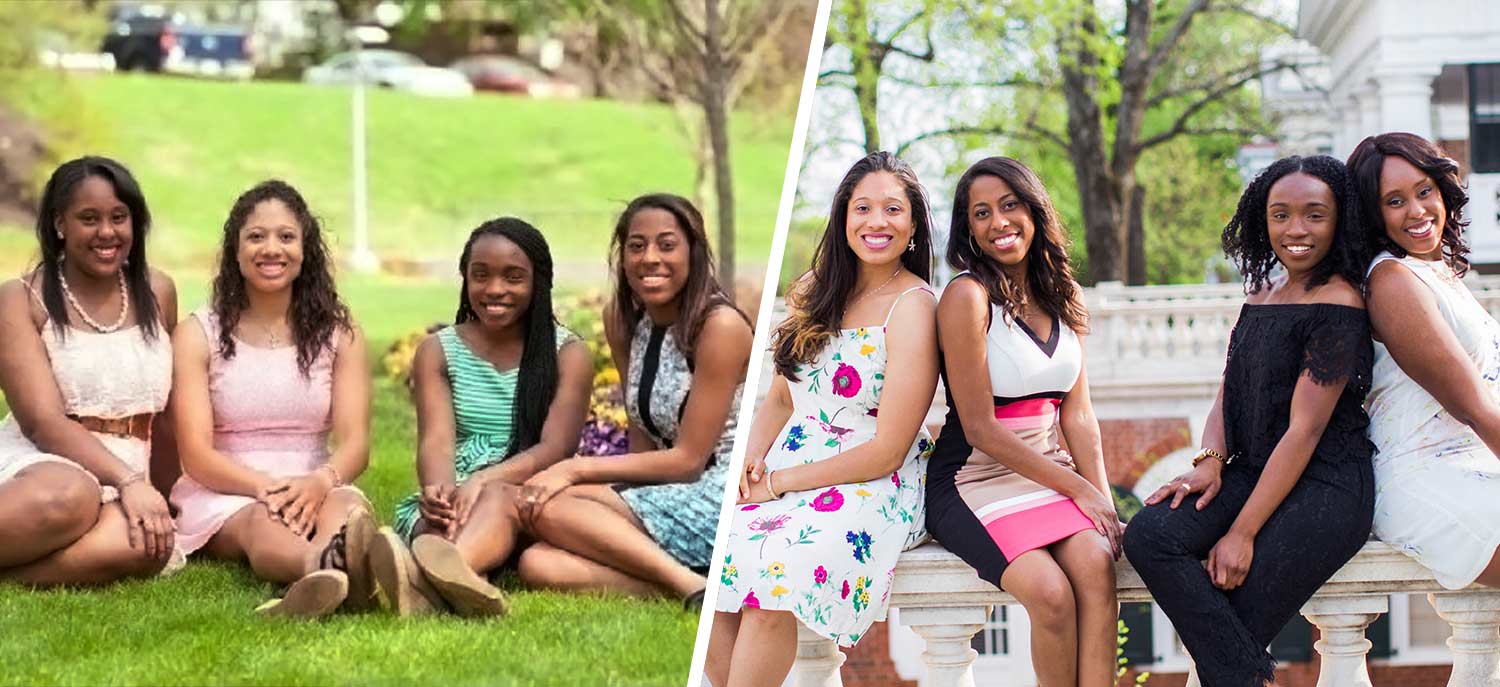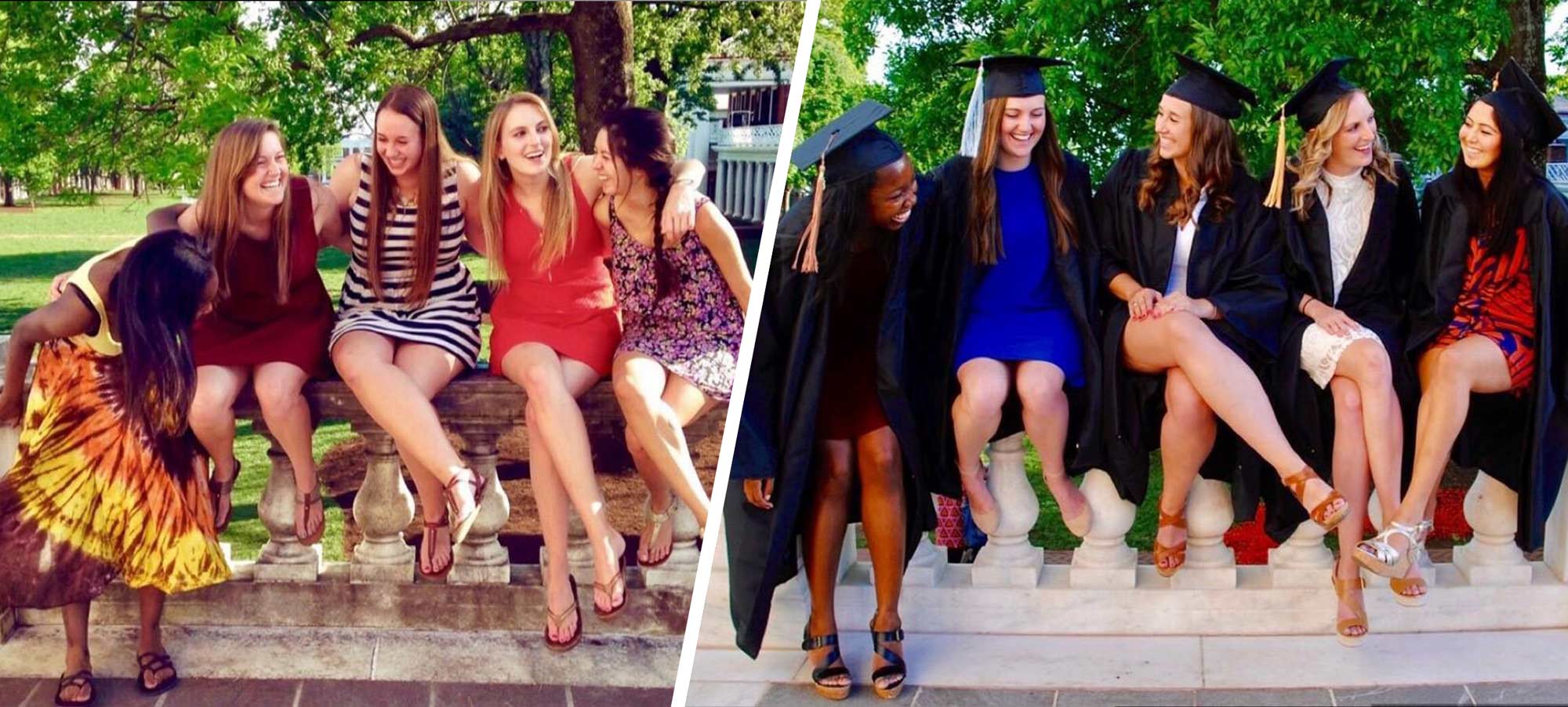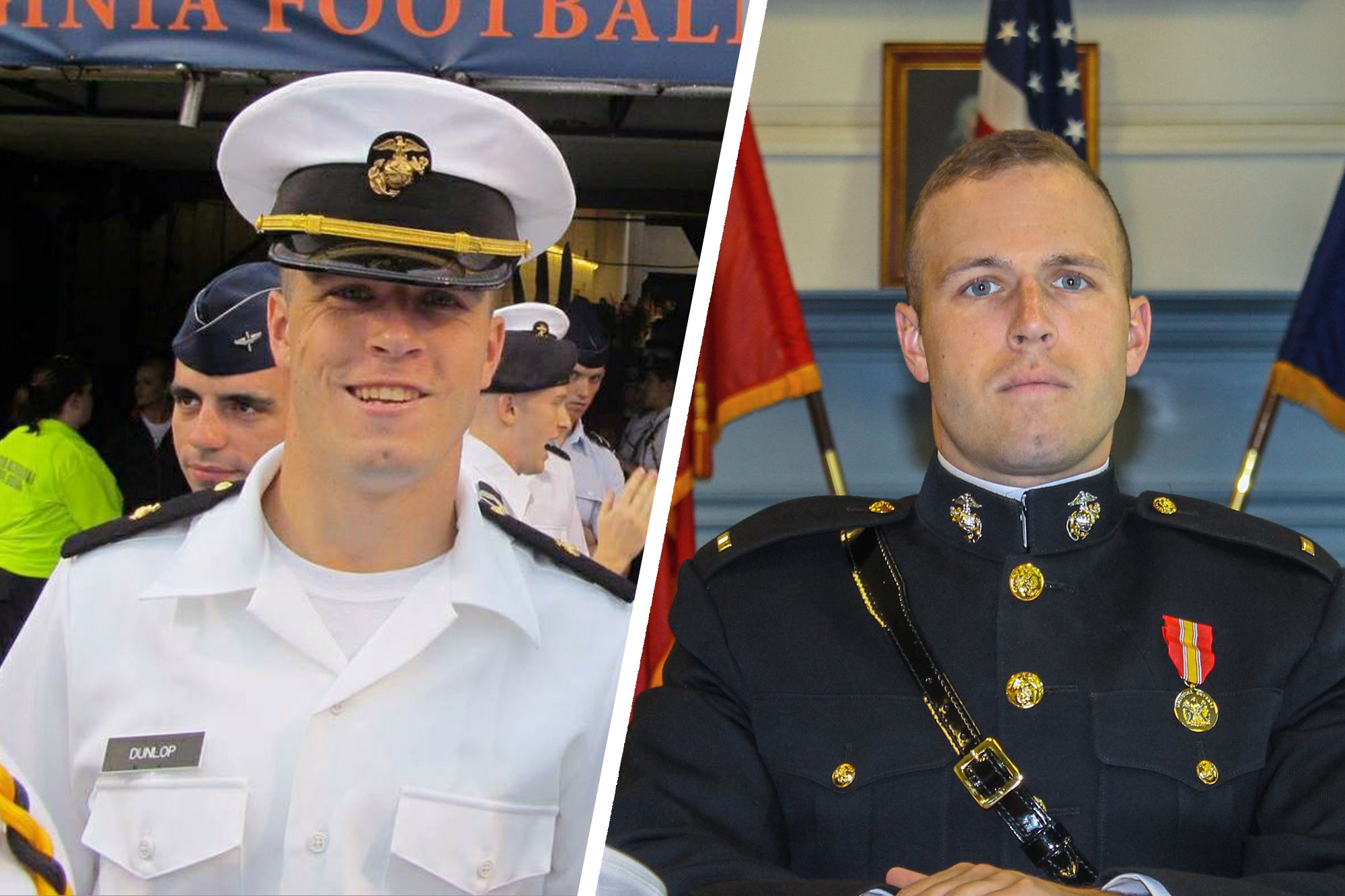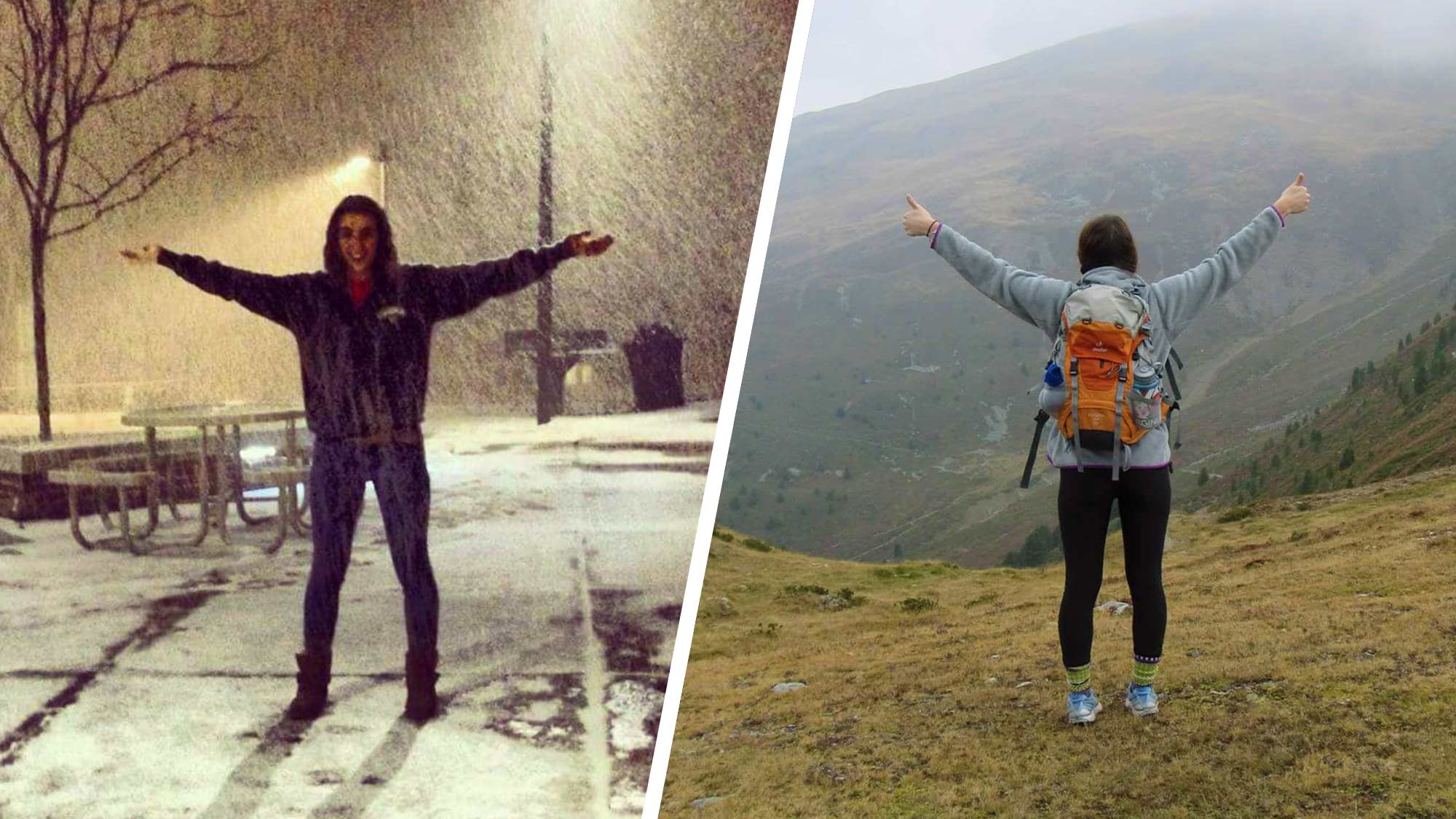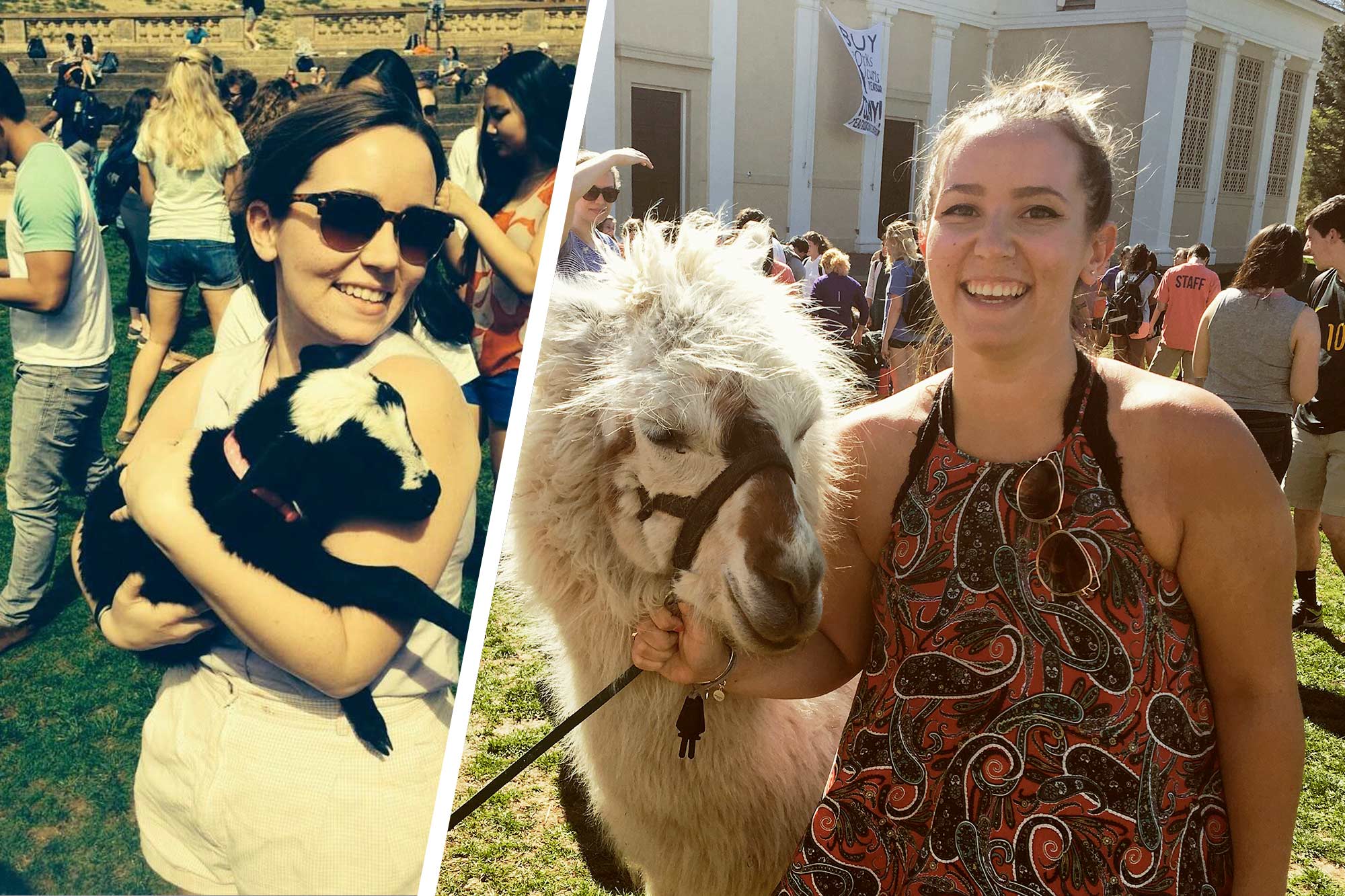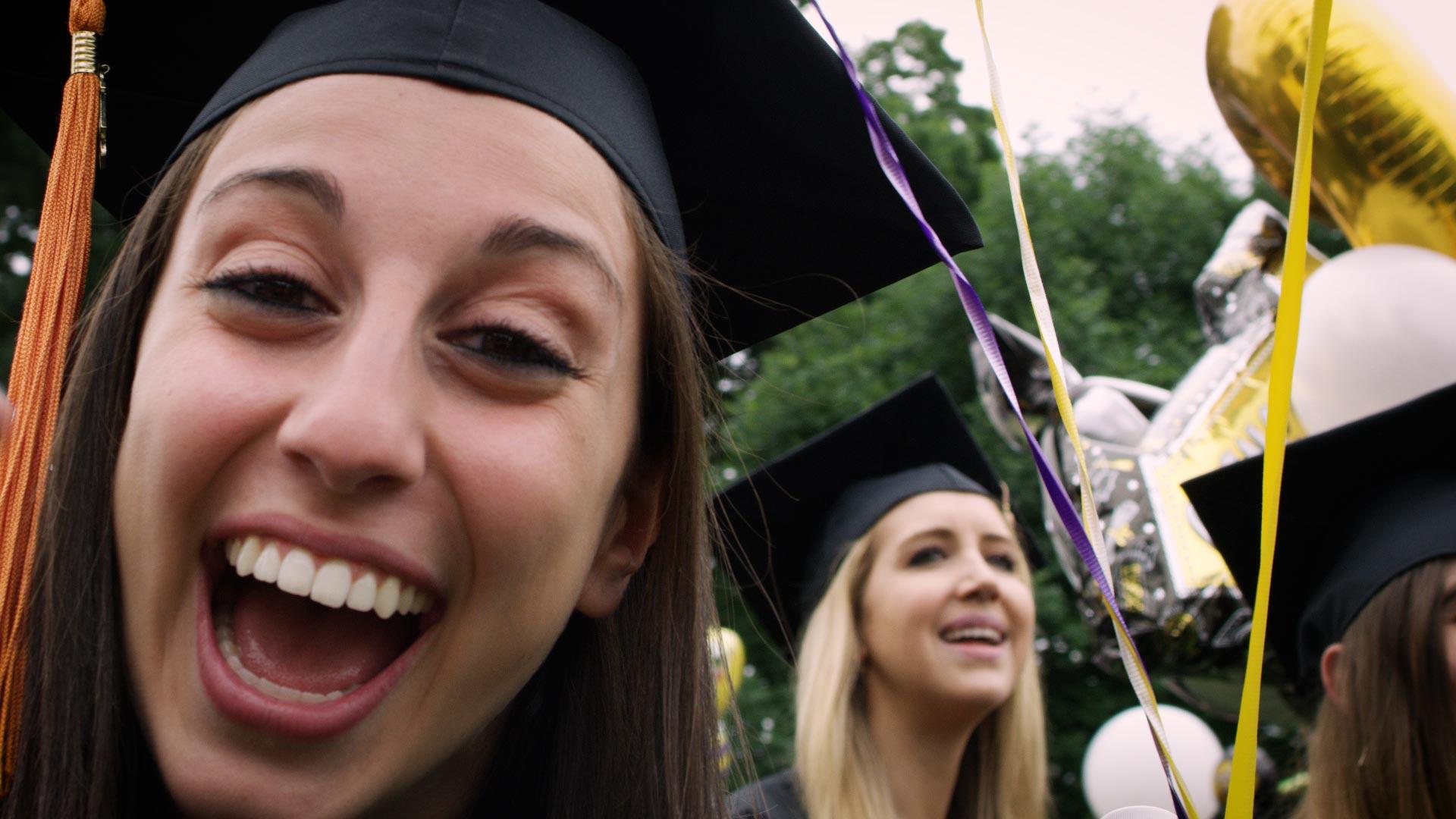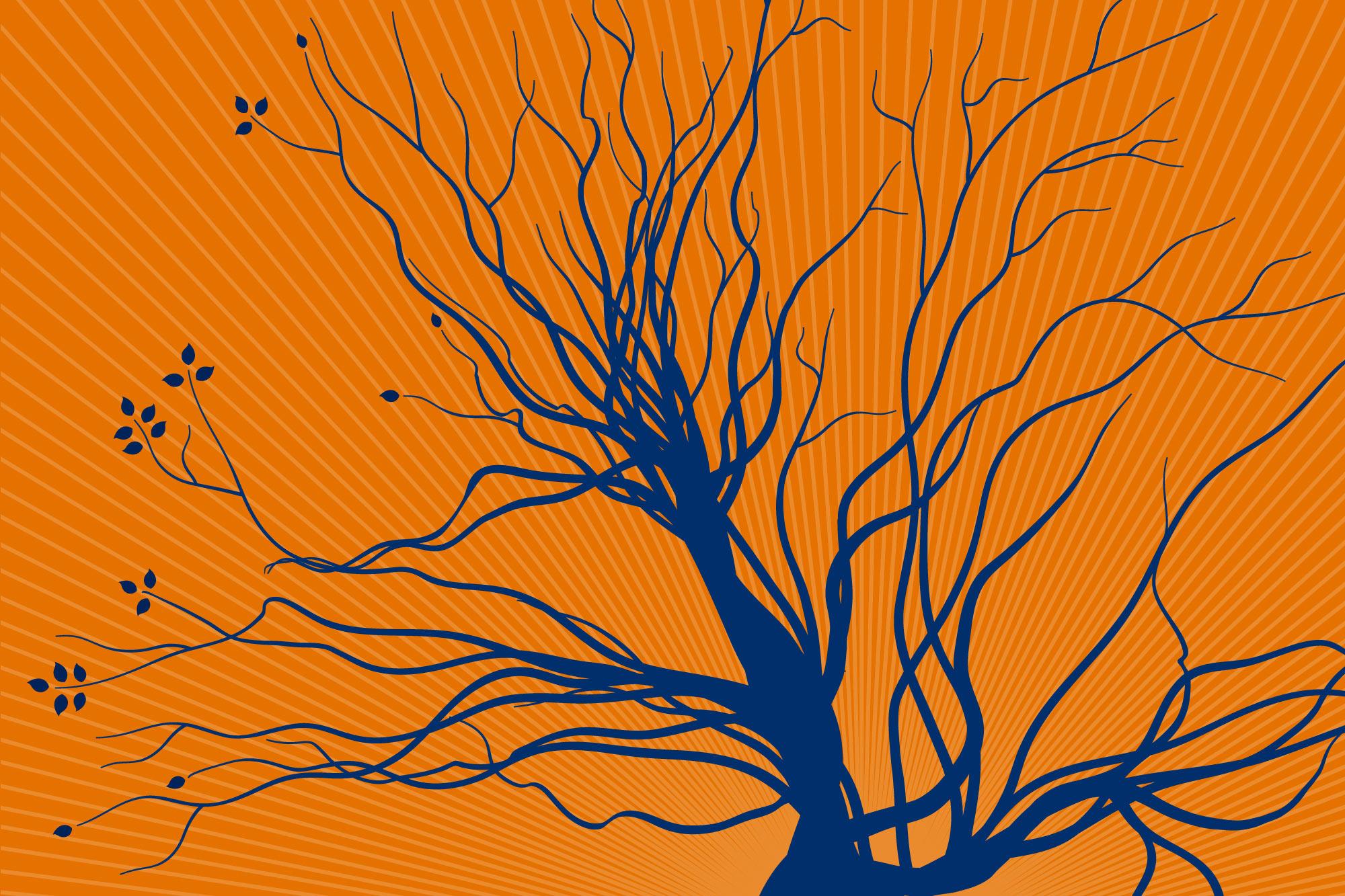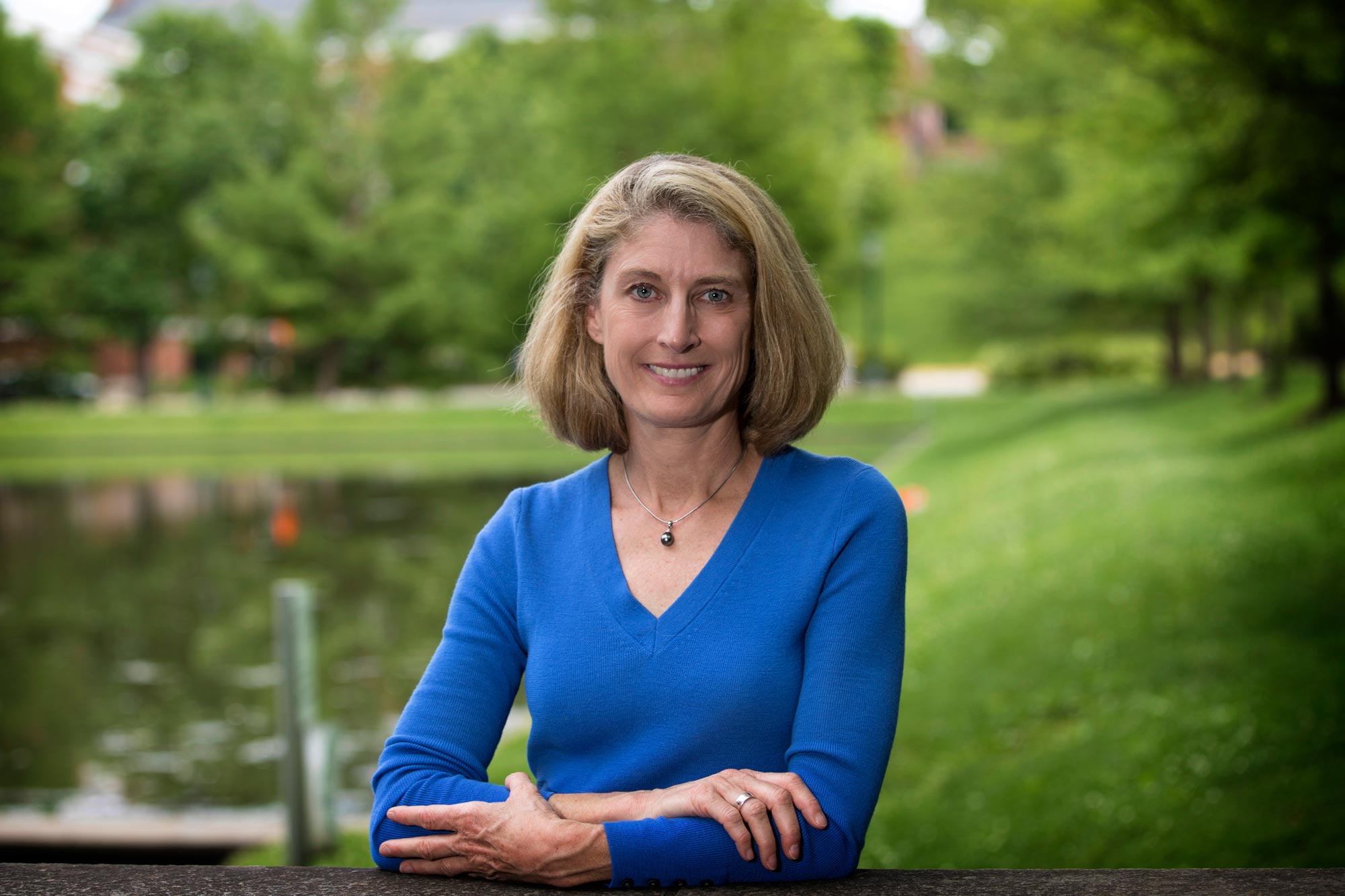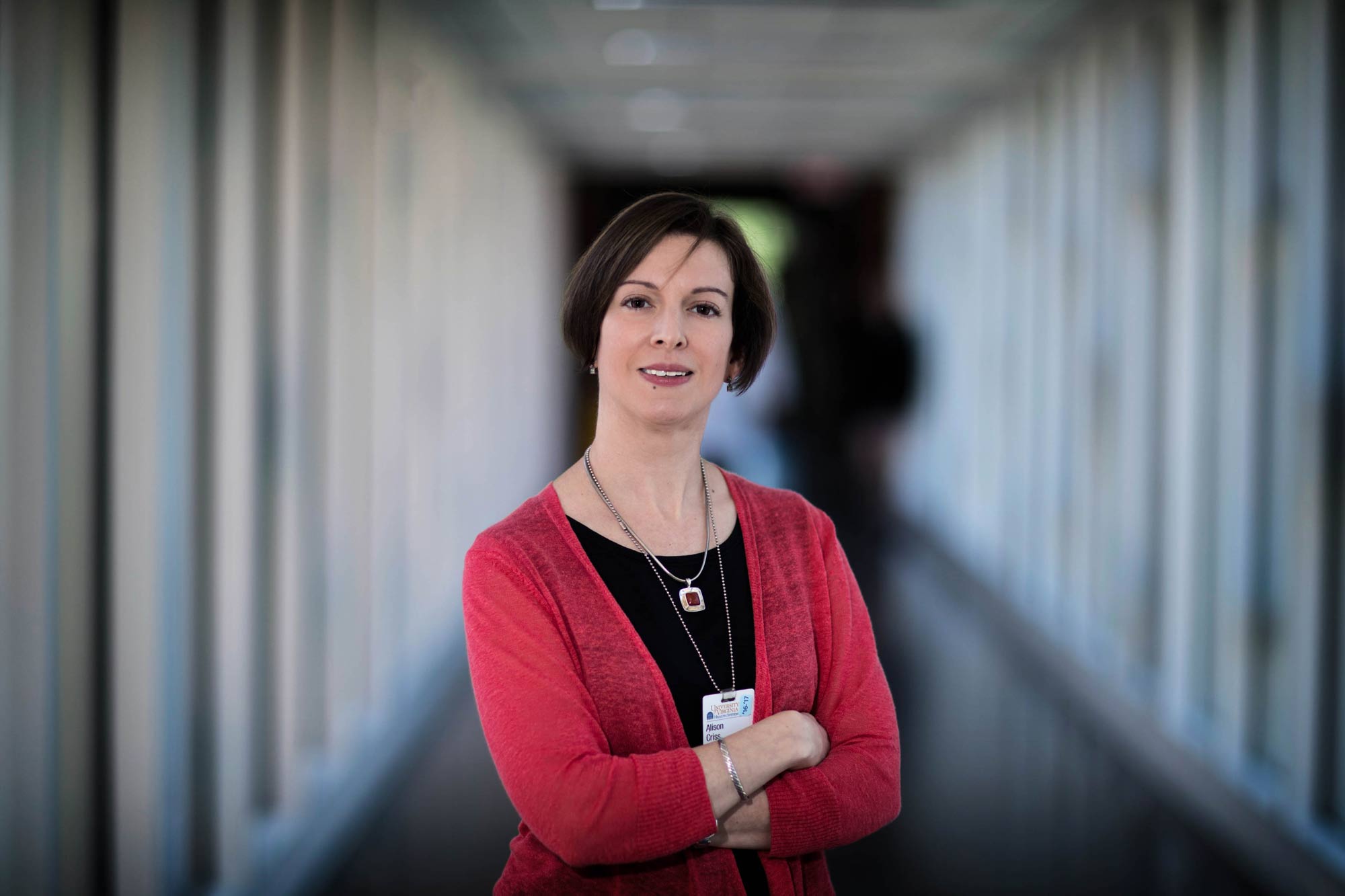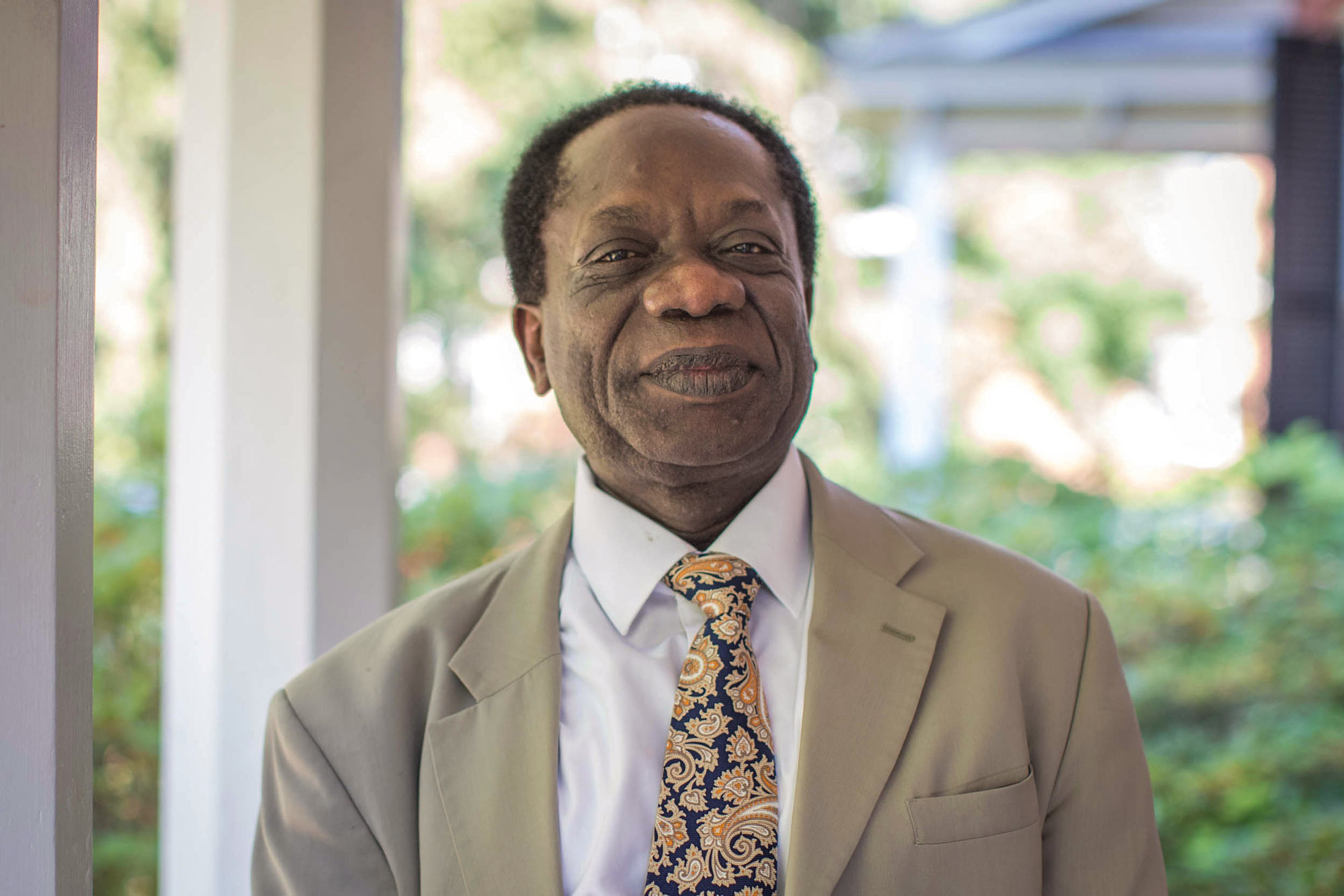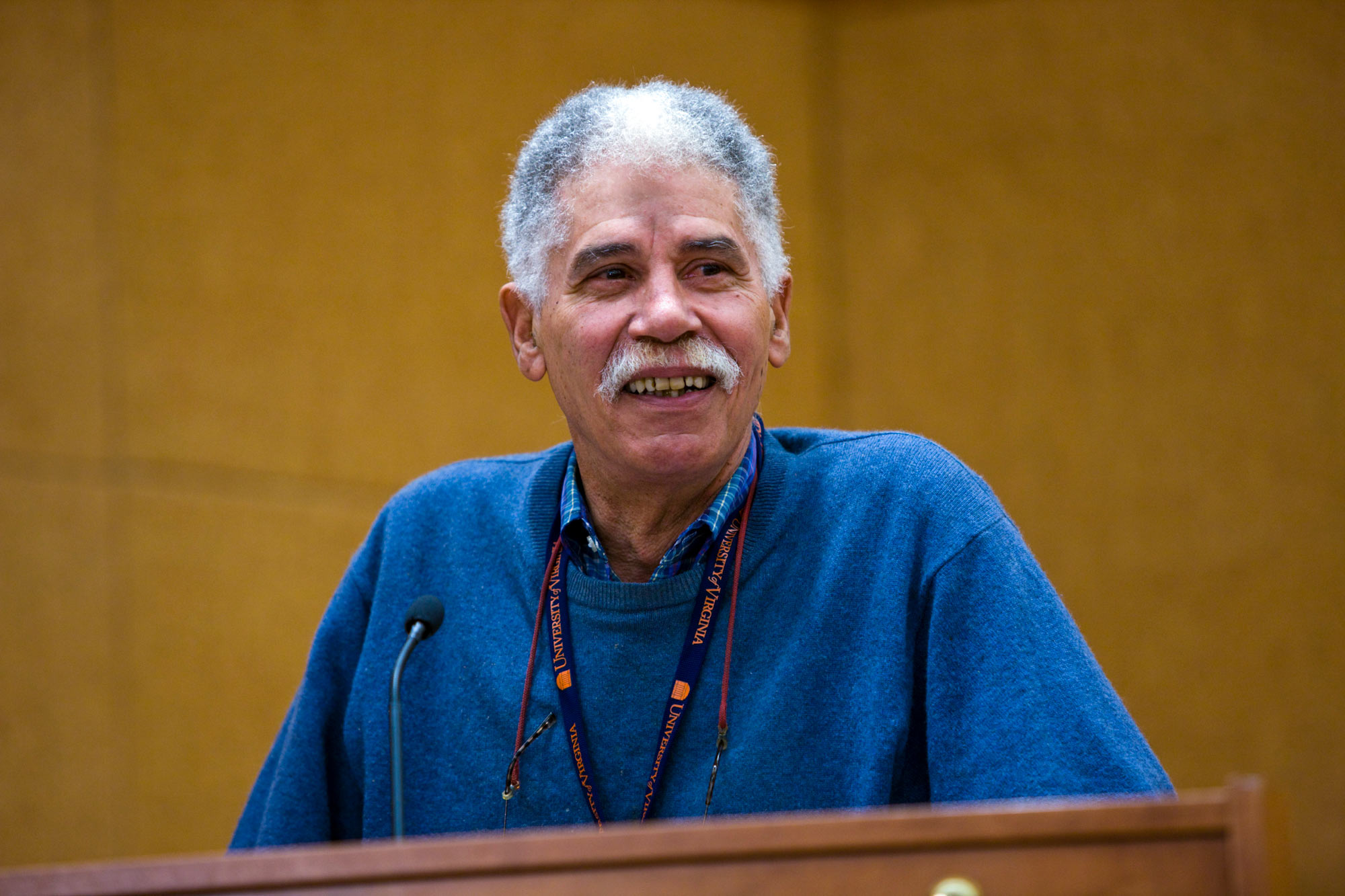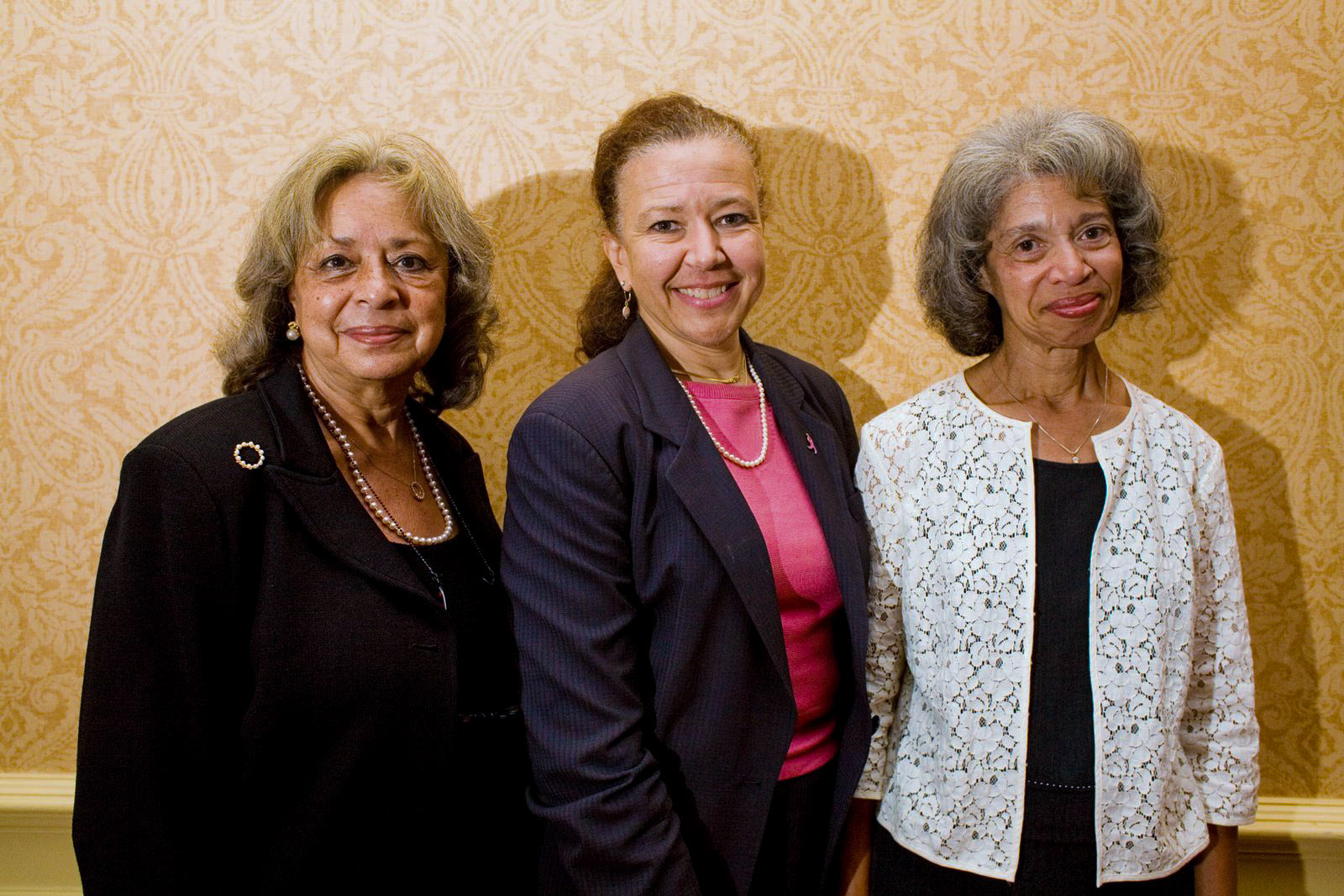The University of Virginia’s Class of 2017 has distinguished itself in many ways, earning dozens of prestigious national and University-wide honors and scholarships. This year’s graduating class includes two Rhodes Scholars, five Fulbright Scholars, two Marshall Scholars, two Rotary Scholars, two Beckman Scholars, a Truman Scholar, one Davis Prize for Peace recipient, one Ertegun Scholar, one Critical Language Scholar and a Whitaker Scholar.
There are also 14 Community-Based Undergraduate Research Grants recipients, 46 recipients of Harrison Undergraduate Research Awards, 61 recipients of Jefferson Public Citizen awards, 23 Undergraduate Student Opportunities in Academic Research (USOAR) awardees, 48 Rodman Scholars, 223 Echols Scholars and 24 Jefferson Scholars, as well as seven “Double Hoo” Research Award winners and three recipients of University Awards for Projects in the Arts.
Two Win Rhodes Scholarships
Aryn Frazier and Lauren Jackson are among the 32 American students named as 2017 Rhodes Scholars – the University’s 52nd and 53rd awardees. The scholarships provide all expenses for two or three years of study at the University of Oxford in England and may provide funding in some instances for four years.
Frazier, of Laurel, Maryland, a politics honors and African-American studies major, will pursue a Master of Philosophy degree in comparative politics. Jackson, of Little Rock, Arkansas, a social and political thought major, will pursue a Master of Philosophy degree in international relations.
At UVA, Frazier concentrated on issues of race and justice.
“My thesis revolves broadly around how conceptions of justice and legality differ along racial lines,” Frazier said. “My broader interests revolve around how people come to form, and then act on, their political ideologies. I hope that in coming to understand these things, I will be better able to bridge the communication gap in politics and organizing.”
Jackson’s research focused on the intersection of the news media and humanitarianism and how to raise awareness of suffering in conflict zones through media engagement.
“I have worked in both journalism and humanitarianism and I have identified significant gaps in efforts to accurately report on and raise awareness for human suffering in conflict zones,” Jackson said. “In a resource-scarce media environment, I want to understand how humanitarians working in conflict zones can facilitate better foreign correspondence to more accurately shape public opinion and international policy in the United States and the United Kingdom.”
Frazier, a Lawn resident, is a Thomas J. and Hillary D. Baltimore Jefferson Scholar and an Echols Scholar. She was the president and political action chair of the Black Student Alliance; senior resident and resident adviser for Housing and Residence Life; and a moderator for Sustained Dialogue. She is a member of the Raven Society and a former member of the Black Voices Gospel Choir. She was a speaker at TEDx Charlottesville 2016.
Jackson said she hopes her Oxford experience will connect her to an intellectual community and to a country she otherwise would not have experienced.
“My degrees will expose me to practitioners working on issues I care about – the role of journalism in international relations, accurate representation of groups lacking access to basic human rights, reformation of international governance and challenges to state sovereignty in the 21st century,” she said. “In these years, I hope to slow my pace of living, at least slightly, and try to really immerse myself in the places I will be studying.”
Jackson has not had a slow pace at UVA, performing extensive research outside of her classwork. Jackson received several research grants, including a Harrison Undergraduate Research Award to study humanitarian data technologies at the United Nations; a Jefferson Public Citizen grant to study post-traumatic stress disorder in post-genocide Rwanda; and a Center for Global Health Scholarship to study beekeeping in Rwanda. She also interned at the United Nations Office for the Coordination of Humanitarian Affairs at the New York Secretariat; CNN; the International Rescue Committee, Charlottesville Resettlement Office; and National Geographic.
While a student at UVA, Jackson was president of the Latter-Day Saint Student Association; conference co-curator for TEDxUVA; an opinion and lifestyle columnist for the Cavalier Daily; creative director for V Magazine; marketing team designer for HackCville; an advertising and promotions marketing strategist for rADical, a HackCville-based, student-run entrepreneurship group; an anchor on student-run radio station WUVA; a Jefferson Public Service fellow; a participant in Books Behind Bars; and a member of Pi Beta Phi and the Raven Society. She is the R.E. Lee Wilson Jefferson Scholar, an Echols Scholar, and received Elks National Foundation and United States Institute for Peace Essay scholarships.
Five Earn Fulbright Scholarships
Five of the 2017 spring graduates will pursue their work on foreign shores with the help of Fulbright Scholarships this year.
The U.S. Department of State and the J. William Fulbright Foreign Scholarship Board offered the grants to the UVA alumni and graduate students, who will be among 1,900 U.S. citizens – selected on the basis of academic and professional achievement, as well as demonstrated leadership potential – who will travel abroad for the 2017-18 academic year through the Fulbright U.S. Student Program.
The scholarships cover round-trip transportation to the host country; funding for room, board and incidental costs; and health care benefits. In some countries the scholarship also has book and research allowances, mid-term enrichment activities, full or partial tuition, language-study programs and orientations.
Hayley Anderson of Centreville, graduating with a master’s degree in public policy from the Frank S. Batten School of Leadership and Public Policy, will be an English teaching assistant at a federal university in Brazil.
“At the Batten School, my research focused on public administration and foreign policy,” Anderson said. “For my final capstone project, I worked with the World Bank to find ways to scale up Brazil’s flagship social welfare program, called Bolsa Família. I enjoyed this work because I often got to use my knowledge of Brazilian politics and Portuguese language skills to accomplish the real goal of bringing Brazilians out of poverty.”
While at UVA, Anderson was a Range resident; a Volunteer with International Students, Scholars and Staff; president of the University Dance Club; and a student docent at The Fralin Museum of Art. A graduate of Westfield High School, Anderson will be a federal management consultant for Deloitte in Washington, D.C., when she returns from Brazil. Her eventual goal is to be a management officer in the U.S. foreign service.
“The Fulbright name carries a lot of weight in the government and private sectors, and I hope that my completion of the award will signal my ability to work and connect with people around the globe.” Anderson said. “On a personal level, this is an opportunity to give my passion for language and cross-culture communication a practical focus.”
Nicholas Budd Fenton of Skillman, New Jersey, graduating with a double major in political and social thought, and Russian and Eastern European studies, will teach English in a university in Omsk, Russia.
An Echols Scholar and a Jefferson Scholar, Fenton is a member of Phi Delta Theta fraternity, the IMP Society, the Raven Society and Engage@UVA. He is a recipient of the Hammond Prize for Excellence in Russian Area Studies. A graduate of The Lawrenceville School, he plans to continue his studies of Russia.
“This award is a dream come true,” Fenton said. “The opportunity to live and work in Russia for a year, where I will be able to explore Russian culture, forge relationships with Russian counterparts and additionally improve my knowledge of the Russian language, means the world to me. I am so grateful to the Fulbright Program for providing me the funding for this adventure. I am confident that my experiences abroad in Russia will serve me immensely as I continue my studies and begin my career.”
Samantha Merritt of Fort Meade, Maryland, graduating with a double major in public policy and leadership and foreign affairs, and a minor in East Asian studies with a concentration in Korean from the Frank S. Batten School of Leadership and Public Policy, will pursue a master’s degree in Korean studies at Yonsei University in Seoul, South Korea.
“This two-year endeavor will give me the opportunity to study South and North Korean politics, economics, history, society, culture and the Korean language, while allowing me to focus on South Korea’s role as a critical partner for peace and stability in the Asia-Pacific region,” Merritt said.
While at UVA, Merritt has been a facilitator for the Women’s Asian American Leadership Initiative; a small group leader and secretary for the Women’s Leadership Development Program; a language consultant for the Volunteers with International Students, Staff and Scholars; and a member of both the Batten Undergraduate Council External Committee and the Rotaract Club at UVA. She lived at Shea House, a total immersion language dormitory, for the past three years. She received a Critical Language Scholarship for Korean and spent two months last year in Gwangju, South Korea.
A graduate of the Seoul American High School, Merritt wants to work for the U.S. government after graduation, using her Korean language skills, cultural literacy and background in Korean studies while working in the diplomatic or intelligence field in order to assist with advancing U.S. foreign policy and military relations.
Sara Pancerella of Manassas, who is graduating with a double major in foreign affairs and Spanish and a minor in Latin American studies, will be an English teaching assistant at the Universidad Nacional in Manizales, Caldas, Colombia.
“One of the most important aspects of my grant is that I will be a cultural ambassador for the United States,” Pancerella said.
A member of the Sigma Delta Pi Spanish Honor Society, she has been a Spanish tutor for the past two years, a Madison House volunteer as an English as a second language classroom assistant, and a language consultant for Volunteers with International Students, Staff and Scholars this semester. A graduate of Stonewall Jackson High School, Pancerella plans to continue her studies on Latin America.
“I definitely plan to pursue a master’s degree following the Fulbright with a regional focus on Latin America, possibly Latin American studies itself,” she said.
Mitchell Wellman of Marietta, Georgia, graduating with a dual major in political and social thought and Spanish (linguistics and philology track), with a minor in economics, will teach English to high school students in Madrid and conduct linguistic research.
“This scholarship will provide me a great opportunity to apply classroom experience in the real world,” he said. “Learning a language is more than just remembering words and grammar; it’s about experiencing the culture and the people who utilize that language. I believe the Fulbright program offers all of these things.”
Wellman was a Lawn resident and a member of the University Judiciary Committee and the Raven Society. He was an assistant managing editor of the Cavalier Daily; founder and executive editor of Q* Anthology of Queer Culture; and a student lecturer of the “Everyone’s a Journalist” course offered through the Cavalier Education Program. An Echols Scholar, Wellman also received a 2017 Reider Otis Endowed Prize, presented by the UVA Serpentine Society for advancing rights of the LGBTQ community, and a 2016 Wyatt Family Fellowship for Spanish Distinguished Major Program thesis research in Barcelona, Spain, awarded by the UVA Spanish Department. He was a digital producer for USA Today College this spring. A graduate of Carl Harrison High School, he plans to attend law school and focus on education policy.
Jill Ferguson Wins Truman Scholarship
Jill Ferguson, a materials science and engineering and nanotechnology major, is graduating with a Bachelor of Science in Engineering degree with high honors. A $30,000 Harry S. Truman scholarship will assist in her graduate research on solar photovoltaic cells.
After graduation, she will work in energy policy in Washington, D.C. for a year through the Truman Scholarship Institute, and then plans to pursue a master’s degree in technology policy at the Massachusetts Institute of Technology.
Ferguson researches solar energy conversion – specifically, using high-efficiency materials and low-cost manufacturing to produce an effective and inexpensive solar panel.
“Energy is my generation’s most critical challenge, because it is a fundamental resource required for life, and yet our current sources are detrimental to the very environment that sustains us,” she said. “One-10,000th of the total solar radiation to the Earth contains enough energy to supply the world’s energy usage. I’m driven to help utilize the sun’s infinite resource, lest we deny our future generations a quality of life we now take for granted.”
Her work on solar photovoltaics also earned Ferguson a 2016 Belinda and Chip Blankenship Scholarship, a $5,000 prize given by 1992 materials science Ph.D. graduate Chip Blankenship to an outstanding engineering student.
As a high school student, she participated in the Intel International Science and Engineering Fair in Los Angeles, where she received a Goethe Award for Young Researchers that funded a weeklong study experience at St. Michael Gymnasium in Bad Munstereifel, Germany – an experience that helped define her research, she said.
Ferguson, a first-generation college student, was invited to speak at the White House Forum on Small Business Challenges to Commercializing Nanotechnology last year. She worked in the Office of the Associate Dean for Undergraduate Education and was an executive member of the Nano and Emerging Technologies Club at UVA, a teaching assistant for “Intro to Nanoscience,” a soloist with the NoTones a cappella group, and co-founder of Quad, an application connecting high school students with University mentors to mitigate college preparation disparity. Ferguson was co-founder of Student Voice @ UVA, academic chair of the First- and Second-Year Councils, legislative committee member of the Student Council and student representative to the State Council of Higher Education for Virginia.
She received the School of Engineering and Applied Science’s Outstanding Student Award for 2017, honoring the engineering student who has exhibited service before self, integrity and excellence. She has been a visiting scholar at the Massachusetts Institute of Technology, researching at MIT’s Photovoltaic Lab in the Department of Mechanical Engineering.
Outside the University, Ferguson is a student leader reporting to the National Nanotechnology Coordination Office on behalf of the National Network of Nano and Emerging Technologies Clubs. She helped plan the 2016 Conference for Student Leaders in Nano and Emerging Tech, held at the TechConnect Conference and Expo in Washington, D.C.
She was an intern at the U.S. Department of Energy’s SunShot Initiative through the Engineering School’s Technology Policy Internship Program. A Rodman Scholar, she has also received the University Achievement Award and the Alcoa Engineering Excellence Scholarship.
She is a graduate of the Roanoke Valley Governor’s School and Staunton River High School.
“I want to have the technical rigor in photovoltaics and economic chops to have an impactful career in energy policy,” Ferguson said. “I will make it my life’s work to help establish and implement the policies that promote solar energy grid integration.”
Two Marshall Scholars
Abraham Axler and Sarah Koch will study in the United Kingdom with Marshall Scholarships.
Axler, of New York City, is an honors major in the Woodrow Wilson Department of Politics. Koch, of Kansas City, Missouri, is a Middle Eastern language and literature major.
Marshall Scholarships finance American students studying in the United Kingdom, covering university fees, cost-of-living expenses, annual book grants, thesis grants, research and daily travel grants, as well as airfare to and from the United States. Regional committees, comprised of British consular personnel and former Marshall Scholars, select up to 40 scholars each year to study at graduate level at a United Kingdom institution in any field of study.
Axler wrote his thesis on voters’ perceptions of transgender candidates, with a focus on developing optimal media strategies for them. He said he has pursued an eclectic education at UVA and now he wants to focus more.
“I have had a highly theoretical education in politics honors, and I have taken classes in everything from native American art to fundraising,” he said. “Now I want to focus on social and housing policy and learn how to articulate policy options and be persuasive.”
Axler hopes to return to New York City to help shape policy for the city.
“I intend to go back and serve New York City after receiving a Master of Science degree in social policy and an M.S.C. in political communication from the London School of Economics,” he said. “This allows me to develop a knowledge of social policy and the communication skills necessary to impact it.”
A Lawn resident, Axler was president of Student Council; Class of 2017 president; a moderator for Sustained Dialogue; a member of the Virginia Alcohol Beverage Control Law Enforcement Review Panel; a member of the Jefferson Literary and Debating Society appropriations committee; and a member of the Raven Society. He is an Echols Scholar and William H.P. Young Jefferson Scholar, a Meriwether Lewis Fellow and a recipient of a Harrison Undergraduate Research Award and a Jefferson Trust grant.
Koch, who has focused her education on Arabic and Persian, is planning a career in the U.S. Army.
She wrote her thesis on “the relationship between soldiers and their translators, and the State Department’s failure to support and protect them through the Special Immigrant Visa Program for Iraqi and Afghan translators,” she said.
Koch, who is a leader in the Army ROTC program, will be commissioned as a second lieutenant in the Army’s Military Intelligence Corps.
“Before entering active duty, I hope to complete master’s degrees in Oriental studies and refugee and forced migration studies at Oxford,” she said.
This will contribute to her career path, which includes serving as a military intelligence officer and then moving into the Army’s civil affairs department. Koch said this would give her an opportunity to use her “interpersonal skills to engage tribal leaders, village elders and other community members face-to-face. By building rapport with a foreign community, I can help accomplish the mission while providing aid to and protecting the area’s civilians.”
At UVA, Koch has been an executive officer in the Army ROTC program; president of the UVA Cadet Association; vice chair of the Undergraduate Research Network; co-chair of the Women’s Leadership Development Program; founder and organizer of the R.J. Hess Memorial 5K race; an English as a second language tutor for Volunteers with International Students, Staff and Scholars; and a member of the Raven Society.
A Lawn resident, Koch is the Frank and Ann Hereford Jefferson Scholar and an Echols Scholar. She ranked seventh of 5,508 cadets in the U.S. Army ROTC National Order of Merit, as well as being ranked among the top 15 percent of ROTC Advanced Camp, the highest possible rating for Army ROTC cadets during their summer leadership course. She received a Harrison Undergraduate Research Award, a Minerva Award for Research, two Superior Cadet awards and a Professor of Military Science Award.
Substantially funded by the British government, the Marshall Scholarships honor the ideals of U.S. Army Chief of Staff Gen. George Marshall, who in 1947 proposed the idea of American economic assistance to help rebuild post-war Europe.
Emily Cox is UVA’s First Ertegun Scholar
Emily Cox, graduating after three years at UVA, will continue her studies at the University of Oxford in England as UVA’s first participant in the Mica and Ahmet Ertegun Graduate Scholarship Programme in the Humanities.
Cox, of Fairfax, a distinguished major in art history, is specializing in fin-de-siècle political art – particularly the work of Camille Pissarro, and his use of light and liminal spaces in “Turpitudes sociales” (1889), a collection of pen-and-ink drawings showing what Pissarro thought were the horrors of the capitalist society, and the nighttime scene, “The Boulevard Montmartre at Night” (1897) as keys to understanding Pissarro’s politics.
“My proposed dissertation at Oxford will expand on a key gap in the scholarship of later French art: namely, the implications of transnational political movements that brought together London, Paris and St. Petersburg in the late 1880s and 1890s,” Cox said. She will bring together studies of artists, writers and philosophers of several European nationalities, including men such as Leo Tolstoy, Emile Zola, Pyotr Kropotkin, William Morris and Pissarro, “to stake out how these profound, but largely unexplored, international connections between art, literature and politics drove early modernism.”
The Ertegun Scholarship, founded by Mica Ertegun, connects top graduate students in the humanities with Oxford’s community of scholars to foster dialogue across academic disciplines, cultures and generations in an effort to create leaders in their disciplines and within the global community. The scholars also have access to Ertegun House, a building on the Oxford grounds for them to study and conduct research.
Cox is looking forward to thinking collaboratively with other members of the Ertegun community. After earning her master’s degree in the history of art and visual culture at Oxford, she intends to pursue a Ph.D. in art history, work as a curator and eventually become a museum director.
An Echols Scholar, Cox received a Lindner Center Fellowship for Art History, an Ingrassia Family Echols Scholars Research Grant, a Summer Ethics Internship Award and a Double Hoo Research Grant. The Musée Pissarro published her article, “A Woman Empowered: Julie Pissarro and the Purchase of the Éragny House.” She has been managing editor of the Undergraduate Law Review, a Madison House volunteer, a member of the Raven Society and co-founder of Thursdays Magazine.
She is a Lawn resident, a Robert M. Burgess Memorial Scholarship recipient and has been on the dean’s list every semester. She was the youngest of 42 interns at the Metropolitan Museum of Art’s Department of European Paintings. She has also had internships at the District of Columbia Superior Court and the U.S. Senate, and she participated in the U.S.-U.K. Fulbright Commission’s Summer Institute at King’s College London.
“I hope that my reception of the Ertegun Scholarship can inspire other students involved in the arts and the humanities to think that their ideas matter; that they, too, with passion and work, can make their ideas known,” Cox said, “that they, too, can diversify human knowledge, and that they, too, should have the audacity to assert the importance of literature, art, language, theology – the stuff that gives our life meaning.”
Two Claim Rotary Global Grant Scholarships
The University has two Rotary Global Grant Scholars: Ashley Ferguson of Ashburn, a distinguished major in biology, who will study at the Medical Research Council Cancer Unit of the University of Cambridge; and Sasheenie Moodley, of Johannesburg and Atlanta, who is completing a master’s in public health program and will pursue a Ph.D. in African studies, combined with social intervention, at the University of Oxford.
The candidates were nominated by the Rotary Club of Charlottesville and selected by a district committee. The scholarships, worth at least $30,000, are intended for students who do not already have an immediate or family connection to Rotary. Global grant scholars must be pursuing a career in one of six areas Rotary supports: peace and conflict prevention/resolution; disease prevention and treatment; water and sanitation; maternal and child health; basic education and literacy; or economic and community development.
Ferguson is researching how cancer cells survive nutritional deprivation and how that is linked to the cell’s mitochondria.
“The thing that unites all cancers is that the cells composing them are dividing too fast,” she said. “Sometimes, a tumor can grow so fast that it outgrows its nutrient source. Yet cancer cells are still able to survive without adequate nutrients. It turns out that a cancer cell’s mitochondria may be at the heart of this survival.”
Mitochondria, often portrayed in textbooks as static, bean-shaped organelles, exist in cells as dynamic networks, constantly undergoing division and fusion. Ferguson thinks the dynamic behavior of the mitochondria likely contributes to the ability of a cancer cell to survive nutrient deprivation.
A graduate of Loudoun Academy of Science and Stone Bridge High School, Ferguson is an Echols Scholar and a College Science Scholar. She plans to continue her research while attaining a Ph.D.
“A year from now, I will apply to the National Institutes of Health Oxford/Cambridge joint Ph.D. program,” she said. “Through this program, I will propose a collaborative project where I will spend time in both an NIH and a Cambridge lab.”
Moodley’s research focuses on using peer support to combat HIV/AIDS in urban townships in South Africa, promoting HIV testing and prevention. She said shared knowledge is powerful and can combat health challenges in developing and developed communities.
Moodley developed her mission at an early age.
“As a South African-born Indian studying in America, I spent almost my entire life outside the United States,” Moodley said. “My family relocated from South Africa to America in 2011, the middle of my junior year of high school. Growing up in South Africa, I became painfully aware of the stigma and discrimination attached to people living with HIV/AIDS as I volunteered in HIV/AIDS orphanages such as the Princess Alice Adoption Home and Hugh’s Haven. I felt a need to stand in solidarity with vulnerable individuals and fight HIV/AIDS stigma. Now, my need fuels my determination to contribute to the end of HIV/AIDS.”
Moodley earned a bachelor’s degree in global development studies in three years at UVA, and has taken a fourth year at the University to earn a master’s degree in public health. She sees earning a Ph.D. in the United Kingdom with the Rotary Global Grant as an extension of her commitment to service. Moodley plans to devote her career to studying and eradicating HIV/AIDS.
Moodley is the E. Paul Rogers Jr. Jefferson Scholar, an Echols Scholar and a Center for Global Health Scholar. She has published research in the Virginia Journal of Bioethics and in Oculus Journal, a publication of the Undergraduate Research Network; and participated in the Clinton Global Initiative University at the University of California-Berkeley and the University of Notre Dame’s Human Development Conference.
One of 54 graduate students living in the Academical Village, she received a Pamela B. and Peter C. Kelly Research Grant, a College of Arts & Sciences Research Travel Grant, the Glenn and Susan Brace Research Scholar Award and a Center for Global Health Research Grant. She was a resident adviser, an organic chemistry teaching assistant and a member of the Echols Honor Council.
She was a staff writer at the Virginia Journal of Bioethics, the founder and editor-in-chief of the Conflux Journal, and founder of CommTalk, an online forum in partnership with Conflux that showcases perspectives on pertinent news events and personal reflections from global citizens in the United States, South Africa, Botswana, Switzerland and other countries. Moodley worked with Madison House’s English Speakers of Other Languages program as a volunteer, and was a member of the Hoos In Treble a capella group and Kappa Delta sorority.
Lilly Crown Wins Middle East and North Africa Regional Fellowship
Lilly Crown, of Deltaville, a distinguished major in Middle Eastern languages and literatures, will assist refugees in Jordan, thanks to the Middle East and North Africa Regional Fellowship Program.
“The MENAR Program matches fellows with partner organizations in the region,” Crown said. “The organization that selected me is called the Collateral Repair Project, a grassroots organization providing food assistance and emergency relief to recently resettled Syrian and Iraqi refugees in Amman, Jordan, and I will be serving as the programs and administrative manager.”
During the past four years at UVA, Crown has studied the Middle East across 10 academic disciplines – anthropology, politics, education, literature, gender studies, sociology, history, religious studies, language and law.
“I have supplemented this knowledge with classes about policy, education, non-governmental organization management, human rights activism and conflict resolution,” Crown said. “My life’s aspirations are a product of this academic background.”
To these academic accomplishments, she has added the experience of working at the Hopes-Sitti Women’s Center in the Gaza Refugee Camp in Jerash, Jordan, a country she has grown to love.
“My biggest accomplishment during that time was designing and launching Banaat Connect, an online language-exchange program between women in the camp learning English and American university women learning Arabic,” Crown said. “I learned there that I work at my best when seeking to mend the part of the world that is within my reach, working on the ground to form relationships and getting engaged at the project and organizational level.”
At UVA, Crown has been president of the Arabic Conversation Club, vice chair of the Cultural Programming Board and founder of the Charlottesville Alliance for Refugees. She has also been a knitting instructor at Knit for Hope, a group that knits clothing items for refugees living in camps in Northern Europe.
She received the Dee Family Global Scholarship, a Global Internship Grant, the Gilbert J. Sullivan Z-Society Scholarship, an International Residential College Summer Travel and Learn Scholarship and a SALAM Scholarship through the Royal Sultanate of Oman, where she studied for seven weeks.
She has been a volunteer tutor for immigrants and refugees and a teaching assistant in graduate-level English as a second language classrooms. She also worked as a research assistant for a Curry School Program in Social Foundations project that looks at the learning that occurs in dialogue, and for a Woodrow Wilson Department of Politics project that looked at violence escalation in the Syrian civil war.
She has interned for “Kerning Cultures” podcasts, helping produce episodes that tell stories about culture, history, science and entrepreneurship in the Middle East.
Daniel Naveed Tavakol Wins Whitaker Fellowship
Daniel Naveed Tavakol will pursue his passion for tissue engineering in Switzerland after graduation.
A biomedical engineering major from Vienna, Virginia, Tavakol received a fellowship from the Whitaker International Program, which sends U.S. biomedical engineering students overseas to undertake a self-designed project. The program covers between $30,000 and $40,000, which includes travel expenses, a living stipend, an enrichment seminar and tuition costs up to $10,000.
“The Whitaker Fellowship will provide me with an incredible experience to go abroad, conduct research and learn an incredible amount about my interests in biomedical engineering and myself as a scientist and engineer,” Tavakol said. “As I will be going to Switzerland for a full year to conduct research on understanding hematopoietic stem cell recruitment in the bone marrow, I will be equipped for the rigor of graduate-level work for when I prepare to enter a Ph.D. program in 2018.”
Tavakol, a researcher in the laboratory of biomedical engineering professor Shayn Peirce-Cottler, has focused his interest on biomaterials and vascular engineering over the past four years.
He said he found his direction partly through a course he co-taught.
“Throughout my time at UVA, I have been able to co-teach a course on regenerative medicine for two years now, and that has given me a love for engineering education and this subfield of biomedical engineering,” he said. “Through this course and my research, I have found a passion for tissue engineering, so I hope that is a part of my academic future.”
A Rodman Scholar, Tavakol is a Lawn resident; was president of the Engineering Student Council; a Class of 2017 trustee; the fourth-year representative to the Rodman Scholars Council; and an Engineering School guide. He is a recipient of the UVA Engineering Outstanding Student Award. He is a member of the UVA and national chapters of the Biomedical Engineering Society, the American Society of Engineering Education, the American Physiological Society and the Virginia Science Olympiad state organization.
A graduate of James Madison High School, Tavakol plans to pursue a Ph.D. program in biomedical engineering, which he hopes will lead to a career in academia and research.
Class Includes Two Beckman Scholars
Two graduates have received Arnold and Mabel Beckman Foundation Scholarships, one of the highest awards in the nation for undergraduate scientific research.
UVA is one of only 10 universities in the country to host the Beckman program. The scholars are selected locally and the grants provide $21,000 in stipend and travel for two summers and one academic year. Each winner’s mentor is provided with an additional $5,000 to be used in direct support of their scholar.
Caroline Kerr, of Ashburn, is a chemistry/biochemistry major, with a Spanish minor.
Kerr, who is entering the Medical Scientist Training Program (M.D./Ph.D.) program at the University of Wisconsin-Madison in August, worked on inorganic synthetic chemistry, with research focusing on the synthesis of boron-based nanoparticles used for oxygen sensing and optical imaging in cells.
Kerr is also a 2015 Harrison Undergraduate Research Award recipient, a dean’s list student and co-president of the Gymnastics Club. She was a member of the American Medical Student Association at UVA, United2Heal and a Madison House volunteer. She was a research assistant in chemistry professor Cassandra Fraser’s laboratory and a chemistry tutor. She is also working on several manuscripts for publication and preparing for an American Chemical Society conference at the end of the summer.
She is considering a career as a physician-scientist, conducting laboratory research and treating patients in a clinical setting.
Yi-Ting Liu, of Winter Springs, Florida, is a distinguished major in neuroscience who researched how an internal clock affects dopamine localization in fruit flies, which would help standardize how dopamine is analyzed in labs around the world.
She was a semifinalist in the health track of UVA’s Entrepreneurship Cup and was a teaching assistant for Bio Lab 2030, the treasurer for Operation Smile, a Madison House volunteer and a member of Alpha Chi Sigma.
She plans to pursue a Ph.D. in neuroscience and become a professor.
Amanda Halacy Wins Davis Prize for Peace
As a first-year student, Amanda Halacy teamed with Emily Nemec and Lauren Baetsen, then third-year biomedical engineering majors, to develop a program for teachers in Zambia, a country that has no formal special education infrastructure, with the help of a $10,000 Davis Projects for Peace award.
Halacy, a global development studies major with a minor in social entrepreneurship, was passionate about the issue because she believes many of the problems that plague the developing world, such as lack of health care, education and opportunities for upward mobility, can be alleviated.
“The stigma against disabilities in the developing world is significantly more severe than in the United States,” Halacy said at the time. “Special Hope Network, our community partner, is so dedicated to providing the children and their families with more opportunities and better lives that it’s very inspiring. Our program successfully allowed the administrators at SHN to focus on their goals more effectively.”
The Great Falls resident was a founding team member of HackCville, a student entrepreneurial collective; contributed to the establishment of the entrepreneurship minor; and taught an independent study course on the refugee crisis that inspired her thesis, a quantitative economic analysis of refugees’ impact on Charlottesville and qualitative docu-series on Charlottesville refugee entrepreneurs.
She received a Center for Global Health Award; a Jefferson Public Citizens Award; was a Madison House volunteer working with Bridging the Gap, a mentorship program with refugee children; an Alternative Spring Break site leader in Atlanta and San Francisco; and a volunteer at The Haven homeless shelter.
Halacy has worked for the One Acre Fund, which supports small farmers; and Ashoka, a social entrepreneurship support group. After graduation, she plans to work as a Venture for America Fellow, working for Aces Health in Atlanta, a small, but rapidly growing health care startup that has designed a platform and app for clinical trial physicians to receive real-time feedback on their subjects’ health, parameters and reactions to drugs by integrating with 200-plus medical wearable devices.
Philanthropist Kathryn W. Davis, who died in 2013, launched Projects for Peace on her 100th birthday in 2007, and that commitment has been renewed every year since. UVA has had Projects for Peace recipients in each of the program’s years of operation.
Three Claim Arts Awards
Three graduates have received grants from the University Award for Projects in the Arts program, allowing them to follow their artistic muses. Modeled on the University’s successful Harrison Undergraduate Research Awards, the arts awards give selected students up to $3,000 for projects that expand their creative expression and showcase artistic accomplishments.
Michael Giovinco of Mays Landing, New Jersey, a drama and cognitive science major, devised and produced a circus show exploring the relationship of old and new circuses.
“I am interested in all forms of movement, whether it be clown, cirque, dance, stage combat, puppetry or one of its many schools of thought,” Giovinco said. “One day, I would like to return to academia as a professor in movement direction.”
Giovinco is a Miller Arts Scholar, and a member of Virginia Circus, Virginia Players, First Year Players and the Drama Arts Board. He is also a member of Moonlight Circus. A graduate of Oakcrest High School, he plans to pursue an M.F.A. in movement and/or devised performance.
Peter Hazel of Arlington, a dual interdisciplinary major in philosophy and film theory and practice, made a short film to examine color and black-and-white film and their effect on emotion and an understanding of beauty.
Hazel is an Echols Scholar and was equipment manager and Virginia Videographers chair of the Filmmakers Society. A Washington-Lee High School graduate, Hazel’s long-term goal is to be an assistant director or producer in the film industry.
“This award allowed me to make my directorial debut, a step that is essential to my filmmaking career,” he said. “With this funding, I can concentrate my energy on the creative aspects of the film.”
Oluwakemi “Kemi” Layeni, of Hampton, an English and studio art double major with an African-American and African studies minor, explored recent encounters between police and young black men and women, taking photographs of protests in Ferguson, Missouri.
An Echols Scholar, Layeni is a student arts docent at The Fralin Museum of Art, a member of UVA’s Visual Arts Board and a peer adviser and Raising the Bar co-coordinator in the Office of African-American Affairs. She plans to pursue a Master of Fine Arts degree in filmmaking.
“As the daughter of Nigerian immigrants, I’m very passionate about telling the stories and experiences of people of the African diaspora and the ties that connect them with others,” she said. “I hope to do this through directing, writing and acting.”









